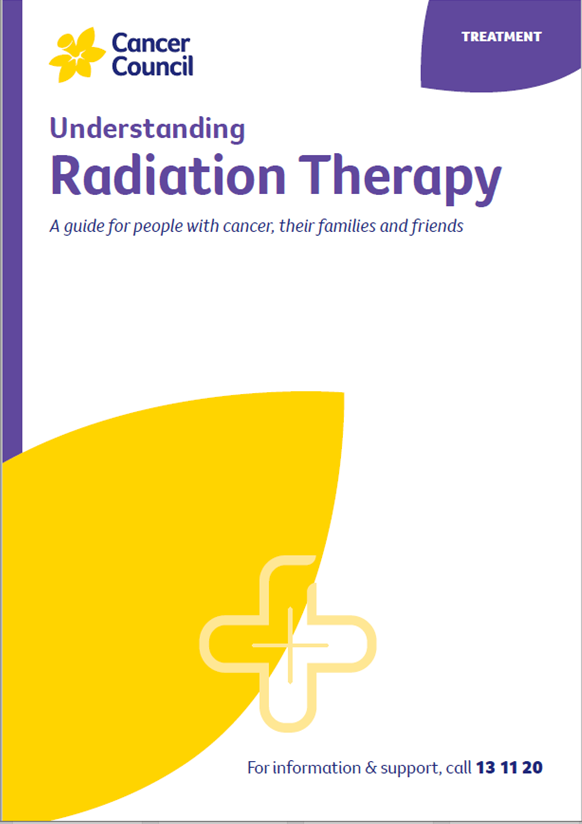- Home
- Bladder cancer
- Muscle-invasive bladder cancer treatment
- Trimodal therapy
Trimodal therapy for bladder cancer
Instead of cystectomy, you may have trimodal therapy as the main treatment for muscle-invasive tumours. Trimodal therapy may be used if a person is unable to have surgery to remove the bladder or would prefer to keep their bladder. It is most suited for people whose bladder is working well and smaller tumours that haven’t spread.
Learn more about:
What trimodal therapy involves
Trimodal therapy involves having a shorter surgery to remove the tumour from the bladder (TURBT), followed by radiation therapy combined with chemotherapy (chemoradiation). Some people who are not fit enough for chemotherapy will have radiation therapy on its own.
Studies have shown that trimodality therapy has similar outcomes to radical cystectomy. Talk to your medical team to discuss whether trimodal therapy may be an option in your situation.
Having trimodal therapy
If you have chemoradiation, the chemotherapy makes the cancer cells more sensitive to radiation and can increase the success of the treatment. You will usually have radiation therapy as daily treatments, Monday to Friday, over 4–7 weeks as an outpatient.
There are different options for receiving chemotherapy. Some people will have it once a week a few hours before or after a radiation therapy session. Other people may take a tablet or receive an infusion over several days through a small plastic tube and pump.
During and after chemoradiation, you may experience side effects from both the chemotherapy and the radiation therapy. Talk to your treatment team about ways to manage the side effects of chemoradiation.
Trimodal therapy has the advantage of not removing the bladder, so you can still urinate in the usual way. You will need to have regular cystoscopies after treatment to check that the cancer has not come back. Some people who have had trimodal therapy for muscle-invasive bladder cancer will later need their bladder removed because the cancer has come back (radical cystectomy).
Treatment for bladder cancer can be complex and you may need to travel to a specialist centre for treatment. Call Cancer Council 13 11 20 to ask about patient travel assistance that may be available.
→ READ MORE: Advanced bladder cancer
Podcast: Making Treatment Decisions
Listen to more episodes from our podcast for people affected by cancer
More resources
Prof Dickon Hayne, Professor of Urology, UWA Medical School, The University of Western Australia, Chair of the Bladder, Urothelial and Penile Cancer Subcommittee, ANZUP Cancer Trials Group, and Head of Urology, South Metropolitan Health Service, WA; A/Prof Tom Shakespeare, Director, Radiation Oncology, Coffs Harbour, Port Macquarie and Lismore Public Hospitals, NSW; Helen Anderson, Genitourinary Cancer Nurse Navigator (CNS), Gold Coast University Hospital, QLD; BEAT Bladder Cancer Australia; Mark Jenkin, Consumer; Dr Ganessan Kichenadasse, Lead, SA Cancer Clinical Network, Commission of Excellence and Innovation in Health, and Medical Oncologist, Flinders Centre for Innovation in Cancer, SA; A/Prof James Lynam, Medical Oncology Staff Specialist, Calvary Mater Newcastle, NSW; Jack McDonald, Consumer; Caitriona Nienaber, 13 11 20 Consultant, Cancer Council WA; Tara Redemski, Senior Physiotherapist – Cancer and Blood Disorders, Gold Coast University Hospital, QLD; Prof Shomik Sengupta, Consultant Urologist, Eastern Health and Professor of Surgery, Eastern Health Clinical School, Monash University, VIC.
View the Cancer Council NSW editorial policy.
View all publications or call 13 11 20 for free printed copies.



